Disrupting Wildlife Cybercrime – Global
Wildlife crime is a matter of supply and demandOn the frontline: Combating wildlife cybercrime
On the frontline: Combating wildlife cybercrime
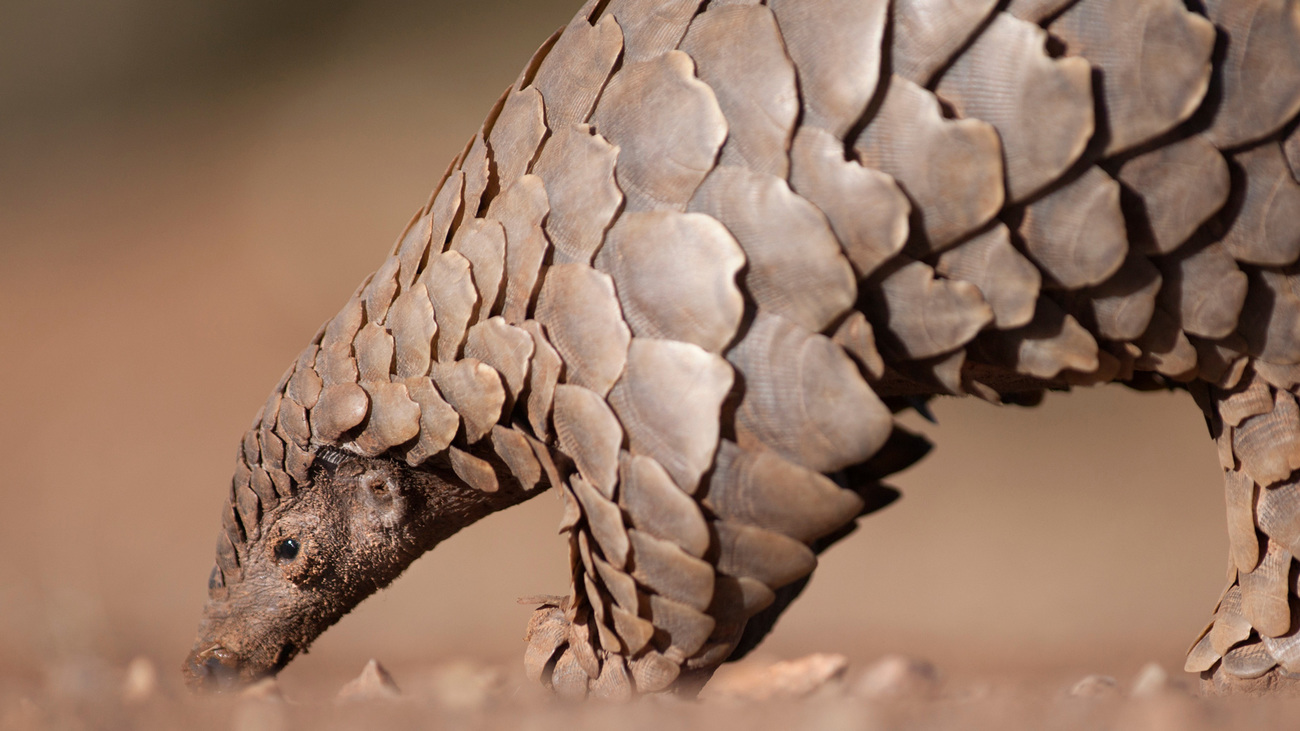
It’s a major threat to wildlife and society.
Hidden among popular videos, viral memes, social media posts, and in virtual shopping carts lies an illegal online trade in wild species and their body parts, including elephant ivory, rhino horn, big cats, primates, parrots, birds of prey, reptiles, and amphibians. With the cloak of anonymity and ease of connecting with other users worldwide, wildlife traffickers can work together, identify interested buyers, and complete transactions using everyday apps and online services.
Desired for their parts as ornaments, fashion, or food and for use in traditional medicine, and fueled further by the promotion of exotic pet ownership on social media, wild populations have been decimated by illicit activity. With hundreds of billions of advertisements and posts live across global platforms, identifying and removing this content at scale is a massive challenge.
At IFAW, we’ve been investigating and disrupting wildlife cybercrime since 2004. Millions of endangered and threatened live wild animals and their body parts are being offered for sale online to buyers across the globe. IFAW’s pioneering research over almost two decades has found tens of thousands of listings or posts offering protected wildlife and their parts for sale on the internet.
In our 2021 report Digital Markets: Wildlife Trafficking Hidden in Plain Sight, IFAW investigators surveyed the digital US market for species that are protected under the US Endangered Species Act or the Convention on International Trade in Endangered Species of Wild Fauna and Flora (CITES) in a six-week investigation of 34 online marketplaces.
They found nearly 1,200 advertisements for almost 2,400 animals, parts, derivatives, or products of protected species. The three most common types of advertisements were for elephant ivory (44%), taxidermy and trophies (27%), and live animals sold as exotic pets (19%). The proportion of elephant ivory is smaller than in 2008 (73%), but it is still surprisingly high considering the US has instituted strict laws and regulations regarding elephant ivory since. The results indicate that savvy traders are circumventing these regulations by using code words, including blurry photos, and claiming exemptions despite a lack of evidence.
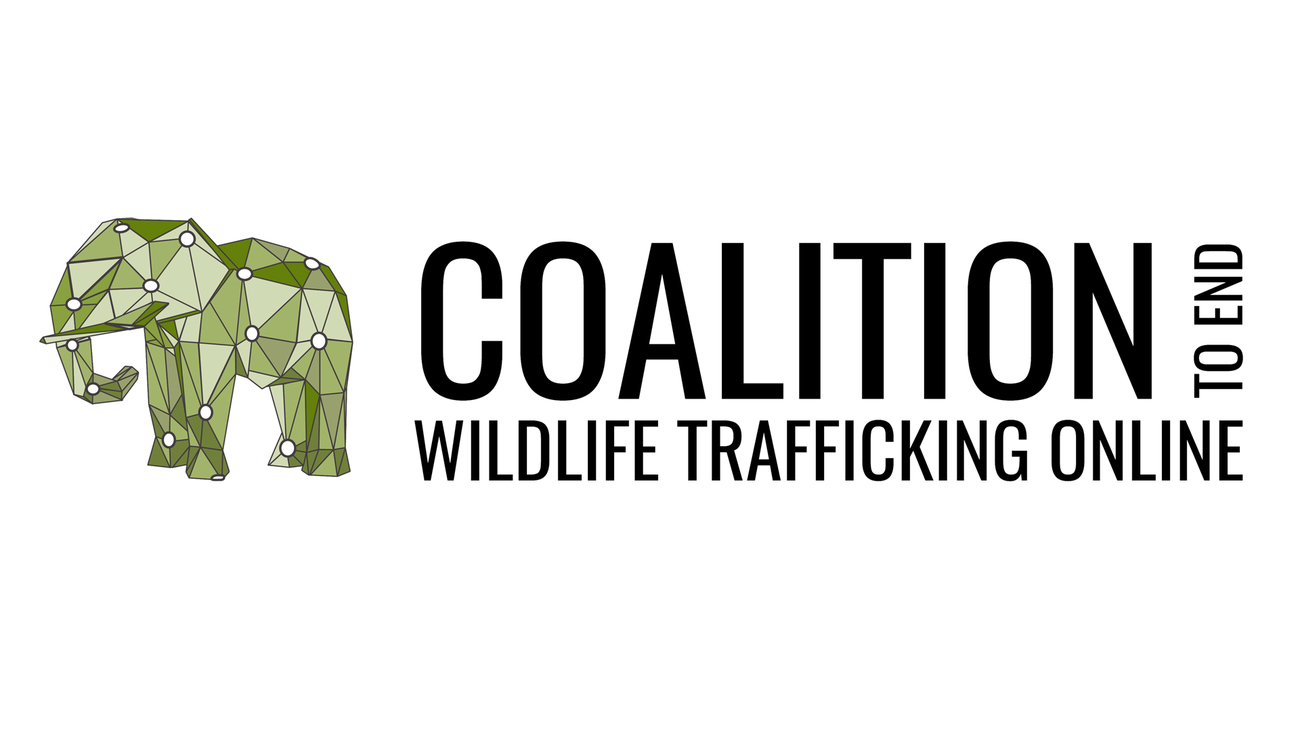
How we are fighting wildlife cybercrime
Sectors must unite to fight this global threat. IFAW acts as a convener across public and private sectors, working closely with governments, academia, law enforcement agencies, civil society organisations, and the private sector, including online marketplaces and social media platforms, to deliver joint projects and activities and provide them with data, information, and training to identify and combat wildlife cybercrime.
IFAW’s pioneering efforts to disrupt the deadly trade include:
Researching, monitoring, and investigating
IFAW has pioneered researching, monitoring, and investigating online wildlife trafficking. Over a decade and a half later, our research continues to reveal a shocking array of tens of thousands of endangered wildlife products and live animals offered for sale over the internet. Some trade in protected wildlife is allowed by law. Identifying which posts in our research are illegal remains an ongoing challenge for our experts because, in most countries, online traders do not have to provide evidence in listings that they are abiding by the law.
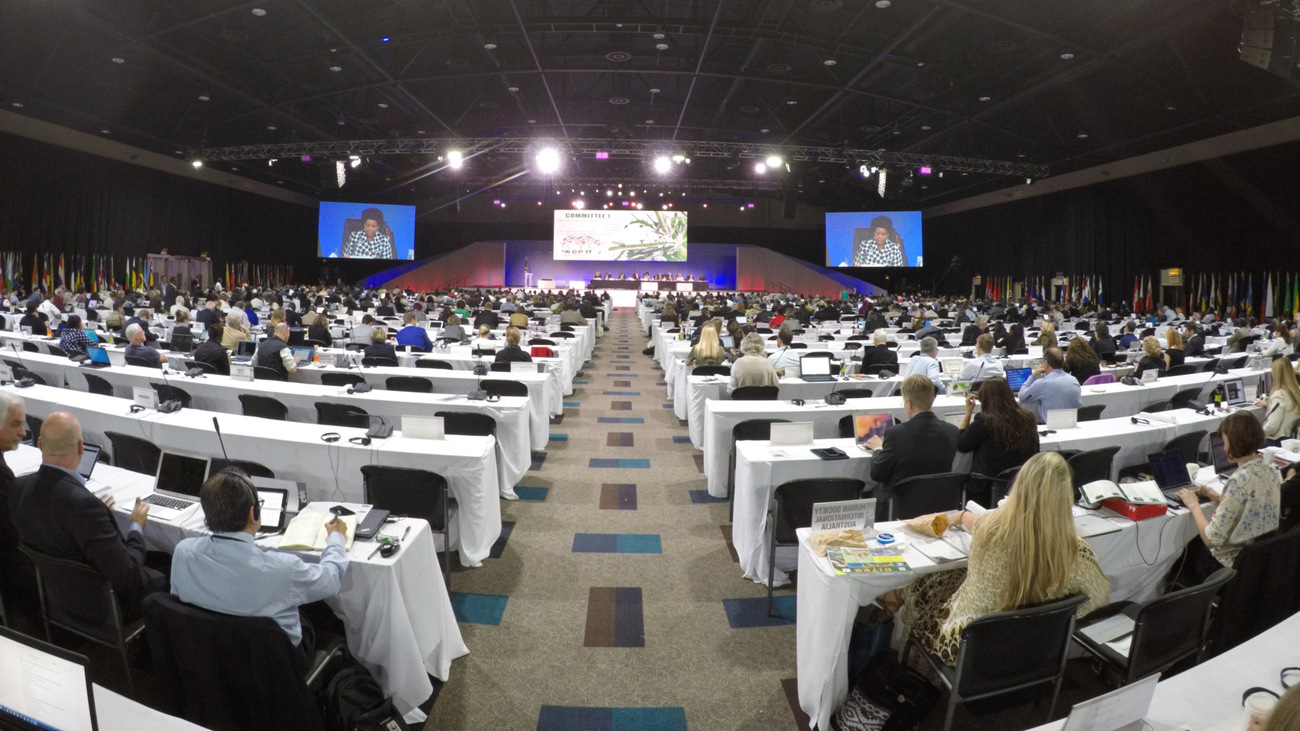
Making progress in public policy
Since 2006, IFAW has advocated for international legal frameworks to tackle wildlife cybercrime. In June 2007, at the CITES Conference of the Parties (CoP), more than 170 countries agreed to a Resolution and Decision that provided a road map for governments to combat online wildlife traffickers. This success has been built on and most recently led to an amended Resolution and a new Decision to tackle wildlife crime linked to the internet at CITES CoP in August 2019.
IFAW shines a spotlight on wildlife cybercrime at high-profile international forums to build awareness of the problem and empower governments and other partners to solve it. IFAW and our partners recently ensured this issue is addressed at the International Union for Conservation of Nature (IUCN) with the adoption of the 050 IUCN motion targeting illegal online wildlife trade. IFAW has also brought this issue to the attention of the United Nations World Crime Congress, the G7, the First High-Level Conference of the Americas on Illegal Wildlife Trade, and many other international and regional forums.
In addition, IFAW calls on countries to strengthen their national legislation and close loopholes exploited by wildlife cybercriminals. To date, at least seven countries have changed their laws to specifically address the unique challenges posed by online wildlife trafficking.
Supporting law enforcement
IFAW supports law enforcement efforts by calling on governments to ensure their enforcers have the necessary resources to detect and disrupt wildlife cybercriminals. This includes having access to cybercrime experts.
IFAW empowers enforcers to detect online wildlife criminals by providing information on the methods used to buy and sell illegal wildlife online, as well as trends on which animals are traded and on what platforms, sharing data on suspicious posts where possible, delivering critical equipment, and supporting training of enforcers.
Since 2022, IFAW has been part of the UNITE Project to fight criminal networks involved in waste or endangered species trafficking, including illegal trade in timber and wildlife products, in and via the EU, and to recover the assets generated from these illicit activities.
The Project unites efforts between Law Enforcement Authorities, EU and international agencies, the financial and private sector, and civil society to defeat environmental crime. It promotes the use of financial investigations and state-of-the-art cyber investigation techniques to gather strategic intelligence to strengthen the understanding of trends and financial flows related to wildlife, timber, and waste trafficking. The intelligence is shared with the law enforcement community in all EU member states and targeted third countries to inform their intelligence strategies.
In 2012, IFAW supported INTERPOL’s Project WEB, the first pan-European operation investigating the online trade in ivory involving nine European enforcement agencies. IFAW continues to support law enforcement efforts by highlighting cases for further investigation by national law enforcement agencies and training more than 100 enforcement officers from six African countries on how to detect wildlife cybercrime. Over the past five years, IFAW also provided more than 30 trainings over the globe to over 1,500 enforcers in China and 200 in Europe and produced tools facilitating combating wildlife cybercrime.
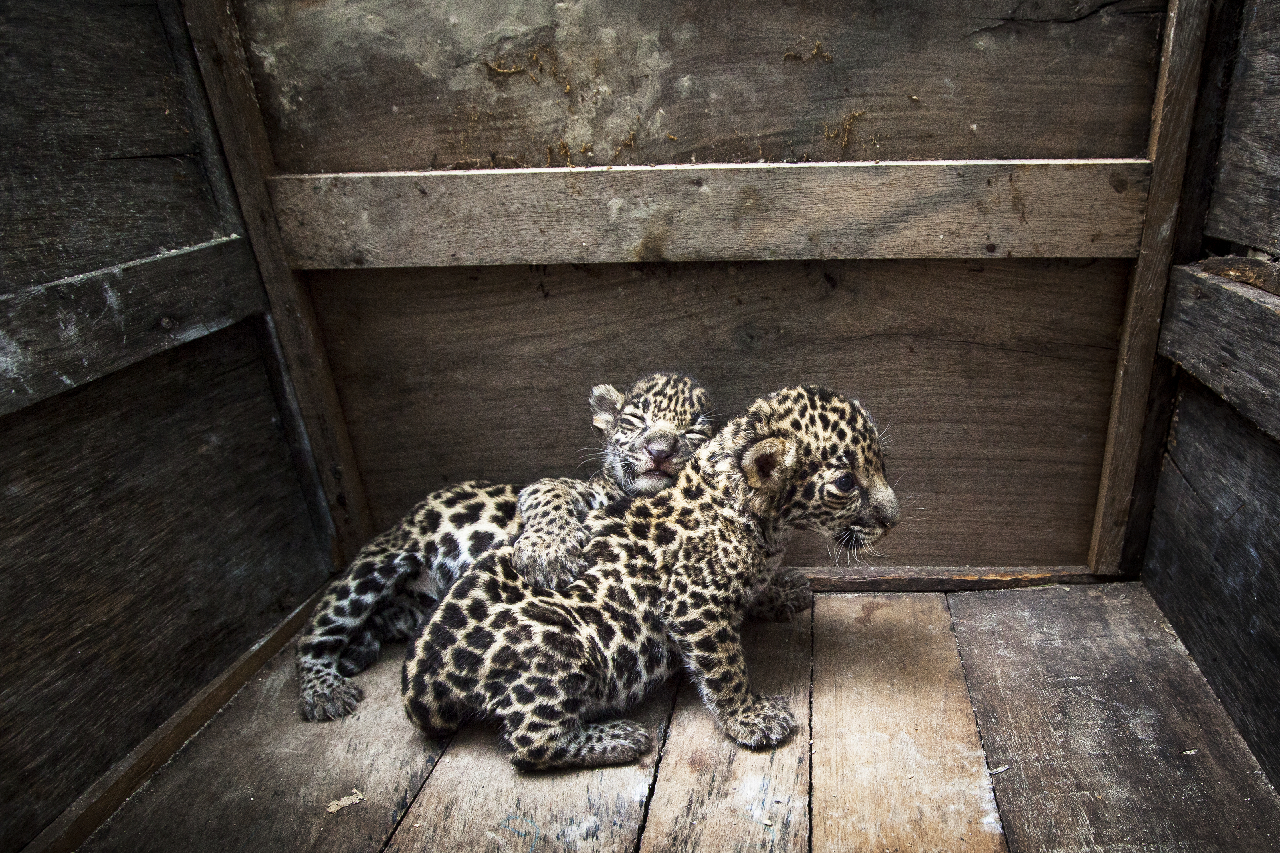
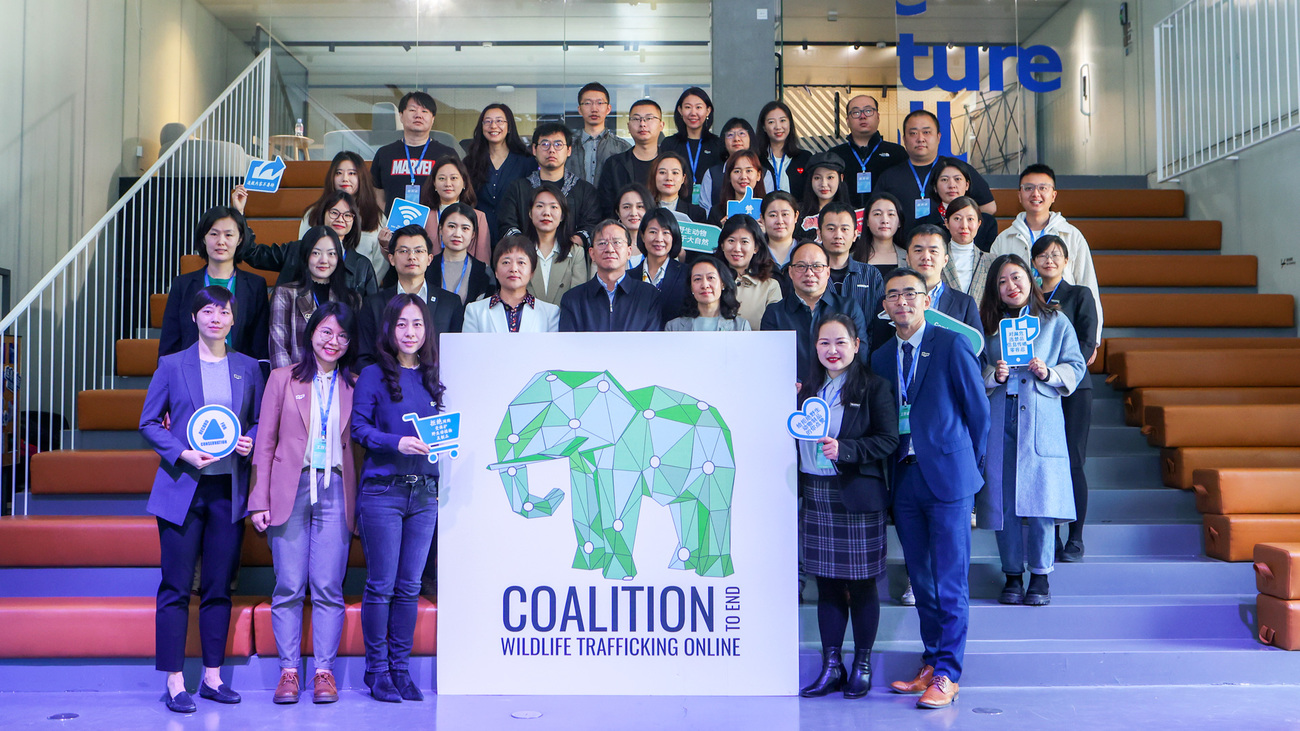
Partnering with online tech companies
Since 2005, IFAW has been at the forefront of working with the world’s leading online technology companies to crack down on wildlife cybercrime.
Five years after the launch of the Coalition to End Wildlife Trafficking Online in 2018, together with WWF and TRAFFIC, we are at the forefront of working with the world’s 46 leading online technology companies to crack down on wildlife cybercrime. We focus on reducing the possibility for wildlife traffickers to use online marketplaces and social media platforms to sell everything from trinkets like elephant ivory carvings to live animals like tiger cubs.
The Coalition convenes e-commerce, search, and social media companies for an industry-wide approach to reduce wildlife trafficking online, sharing lessons learned and best practices. Today, the Coalition is comprised of 46 companies with more than 11 billion user accounts.
Company partners have reported blocking or removing more than 11 million listings that violate prohibited wildlife policies to date. These listings included live big cats, reptiles, primates, and birds for the exotic pet trade, as well as products derived from species like elephants, pangolins, and marine turtles. Companies have launched joint user messaging campaigns with more than 1 billion impressions across social media for wildlife-related content.
In collaboration with wildlife experts from IFAW, WWF, and TRAFFIC, each company develops and implements policies and solutions to help end wildlife trafficking online. The Coalition focuses on strengthening company policy, industry collaboration, user education, mobilising citizen spotters, in-depth company training, and machine learning enhancement.
IFAW, WWF, and TRAFFIC also provide companies with updated global and regional trade trend data, training materials, policy guidance, and educational information for users to help spot illegal products. Read our progress update and FAQs to learn more.
Addressing the demand
We’re helping mobilise the public to do their part to stop wildlife trafficking online. We promote being a conscious consumer by discouraging the purchase of wildlife or wildlife products. We also launch public education campaigns informing people of relevant laws and regulations and legal implications for using the internet for wildlife crime.
As part of our work with the Coalition to End Wildlife Trafficking Online, we are working with our partners WWF and TRAFFIC and companies on mobilising citizen scientists and improving practices around user education. Volunteers in the Coalition’s Cyber Spotter program helped to identify more than 11,000 prohibited wildlife listings for review by company members. To illustrate our work on educating users, companies have launched joint user messaging campaigns on World Elephant Day, Global Tiger Day, and World Sea Turtle Day, with more than 1 billion impressions across social media for wildlife-related content. Companies have expanded this engagement through in-app pop up alerts (on Facebook, TikTok, and Douyin) and reporting pathways specifically for suspicious wildlife content (on platforms such as Alibaba, Baidu, Sogou, eBay, Etsy, Facebook, and TikTok).
Additionally, we encourage contextually tailored efforts that vary depending on the target audience through the use of behavior-centered design (BCD). Each evidence-driven BCD approach is guided by theories and techniques of behavioral psychology, grounded in research, and informed by behavior design methods—first seeking to understand, rather than be understood.
We develop initiatives to counter wildlife trafficking that aim to influence attitudes, perceptions, and behaviors. By uncovering, understanding, and leveraging specific behavioural determinants (what drives people to behave a certain way—things like identity, sociocultural norms, and ease), we strive to reduce the desire and demand for the illegal ownership of wildlife and wildlife products.
With fresh thinking and bold action, IFAW is working to tackle wildlife cybercrime through public and private partnerships that detect and disrupt online wildlife trafficking.
Resources
Factsheet
Articles
- Daring team stops trafficking of endangered wildlife in Indonesia (ifaw.org)
- The Coalition blocks millions of wildlife crime listings (ifaw.org)
- our mission to end the plight of pangolins (ifaw.org)
- combating Wildlife Cybercrime in Great Mekong Region and Malaysia | IFAW
- AI Guardian of Endangered Species recognizes images of illegal wildlife products with 75% accuracy rate (ifaw.org)
- IFAW volunteers combatting wildlife cybercrime | IFAW
- Global internet companies protect wildlife with technology
- Google and eBay join forces to launch major crackdown on wildlife traffickers
- Tech giant Baidu joins IFAW to save wildlife
- Interpol & IFAW co-host cross-sector workshop to address cyber-enabled wildlife crime
- Disrupting wildlife cybercrime in Europe and Russia
- Leading tech companies unite to stop online wildlife traffickers
- Leboncoin becomes a pioneer in the fight against wildlife trafficking online in Europe
- Tech companies take down 3 million online listings for trafficked wildlife
Publications
- Impact of UK Ivory Act 2018 (2023)
- Stolen Wildlife: The EU – a destination for wildlife traffickers (2022)
- Digital Markets: Wildlife Trafficking Hidden in Plain Sight (2021)
- Global Wildlife Cybercrime Action Plan (2018)
- Disrupt: Wildlife Cybercrime – Uncovering the scale of online wildlife trade (2018)
- Out of Africa: Byting Down on Wildlife Cybercrime (2017)
- E-commerce and Wildlife Cybercrime: Effective policies and practices to stem the growth of illicit trade (2017)
- An Investigation of Hawaii Online Ivory Trade (2016)
- ELEPHANT vs. MOUSE – An Investigation of the Ivory Trade on Craigslist (2015)
- Wanted – Dead or Alive, Exposing Online Wildlife Trade (2014)
- Bidding Against Survival: The Elephant Poaching Crisis and the Role of Auctions in the U.S. Ivory Market (2014)
- Click to Delete - Australia (2014)
- Click to Delete - New Zealand (2014)
- Project Web: An INTERPOL investigation of ivory trade in nine European countries (2013)
- Making a Killing (2012)
- Killing with Keystrokes 2.0: IFAW’s Investigation into the European Online Ivory Trade (2011)
- Killing with Keystrokes: An Investigation of the Illegal Wildlife Trade on the World Wide Web (2008)
- Bidding for Extinction (2007)
- Caught in the Web (2005)
- Elephants on the High Street: an investigation into ivory trade in the UK (2004)
Related content